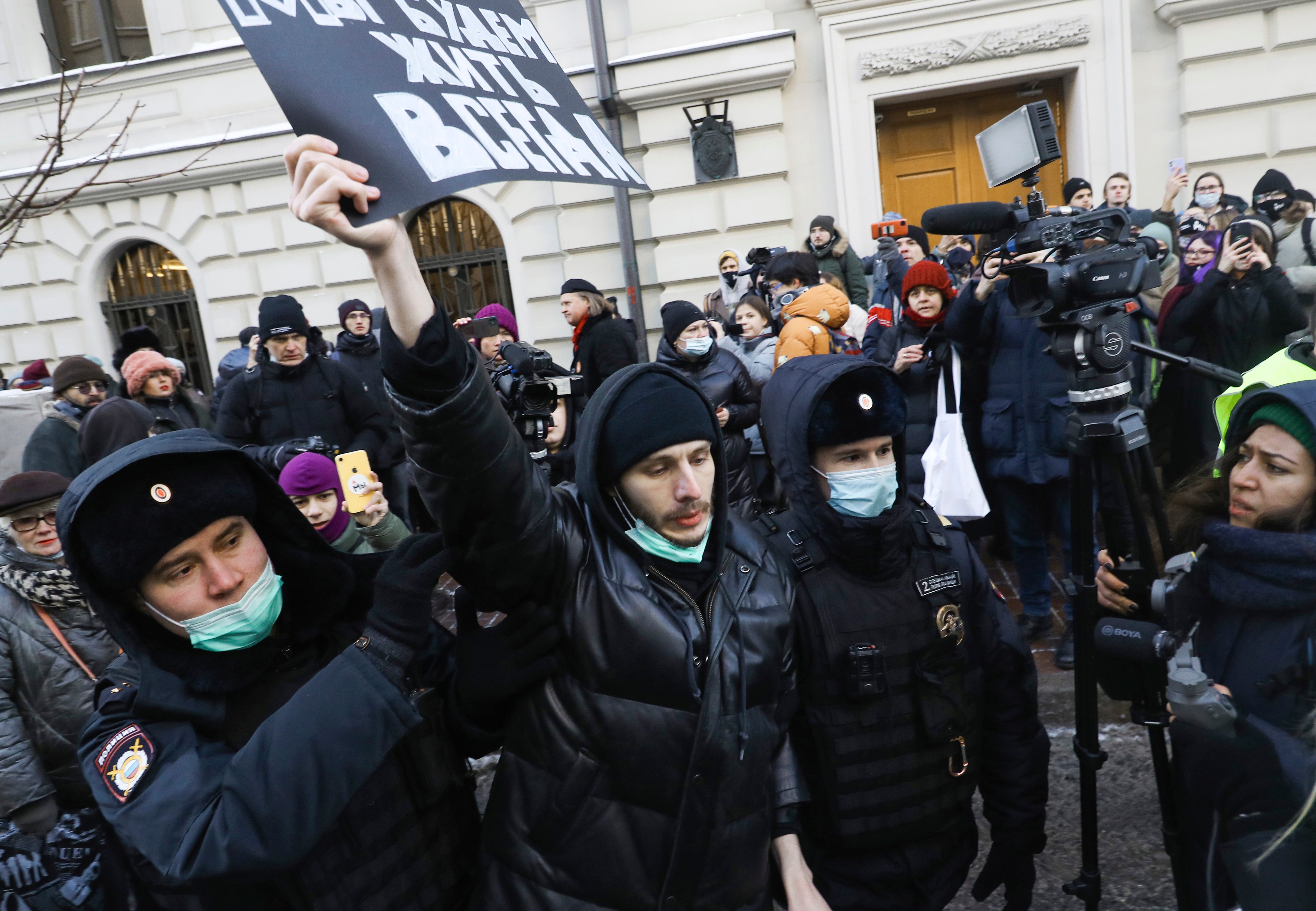Russian court orders closure of top human rights group Memorial
Russia has targeted journalists, media outlets and rights groups under its controversial ‘foreign agent’ law

Your support helps us to tell the story
From reproductive rights to climate change to Big Tech, The Independent is on the ground when the story is developing. Whether it's investigating the financials of Elon Musk's pro-Trump PAC or producing our latest documentary, 'The A Word', which shines a light on the American women fighting for reproductive rights, we know how important it is to parse out the facts from the messaging.
At such a critical moment in US history, we need reporters on the ground. Your donation allows us to keep sending journalists to speak to both sides of the story.
The Independent is trusted by Americans across the entire political spectrum. And unlike many other quality news outlets, we choose not to lock Americans out of our reporting and analysis with paywalls. We believe quality journalism should be available to everyone, paid for by those who can afford it.
Your support makes all the difference.Russia’s Supreme Court has ruled that the country’s oldest and best-known human rights group, Memorial, must be shut down for breaking a controversial “foreign agent” law – capping a year of crackdowns on Kremlin critics unseen since the Soviet days.
The shuttering of the group closes a year in which the top Kremlin critic Alexei Navalny was jailed, his political movement banned and many of his allies forced to flee the country.
Moscow says it is simply enforcing laws to thwart extremism and shield the country from foreign influence.
“This is a bad signal showing that our society and our country are moving in the wrong direction,” the TASS news agency quoted Memorial board chair Jan Raczynski as saying on Tuesday.
Closing the group would increase the risk of “total repression” in Russia, one of Memorial’s lawyers, Maria Eismont, said during the final hearings on Tuesday.
Memorial has called the lawsuit politically motivated. The Interfax news agency quoted a lawyer for the group as saying it would appeal, both in Russia and at the European Court of Human Rights.
Established in the “glasnost” era of Soviet liberalisation by prominent dissidents including the widow of Nobel Peace Prize-winner Andrei Sakharov, Memorial initially focused on documenting the crimes of the Stalinist era.
It served as Russia’s main rights group through two wars in Chechnya in the 1990s, and has more recently spoken out against the repression of critics under *resident Vladimir Putin.
The authorities placed the group on an official list of “foreign agents” in 2015, a move that entailed numerous restrictions on its activities.
In recent months the Russian government has designated a number of independent media outlets, journalists and human rights groups as foreign agents. At least two disbanded to avoid a tougher crackdown.
Last month, prosecutors accused the Moscow-based Memorial Human Rights Centre and Memorial International, its parent structure, of violating the foreign agent law.
Prosecutors said Memorial International breached the regulations by not marking all its publications, including social media posts, with the label. They accused the Moscow-based centre of condoning terrorism and extremism.
Speaking at the final hearing on Tuesday, a state prosecutor said Memorial had organised large-scale media campaigns aimed at discrediting the Russian authorities, according to TASS.
The group has denied any serious violations and called the lawsuits political. It has said its members would continue their work even if it is dissolved.
Mr Putin, a former agent in the Soviet KGB security service, said this month Memorial had defended organisations Russia considers extremist and terrorist, and that its list of victims of Soviet-era repression included Nazi collaborators.
The past year has also seen Mr Navalny jailed on charges he says were trumped up, after returning from Germany for treatment from poisoning that western countries describe as a state-backed assassination attempt. Mr Navalny’s political network was banned as extremist and many of his allies have been jailed or fled.
Russia defends the independence of its legal system and says its laws on extremism and foreign influence are similar to those in other countries. It denies any role in poisoning Mr Navalny.
Reuters / AP



Join our commenting forum
Join thought-provoking conversations, follow other Independent readers and see their replies
Comments